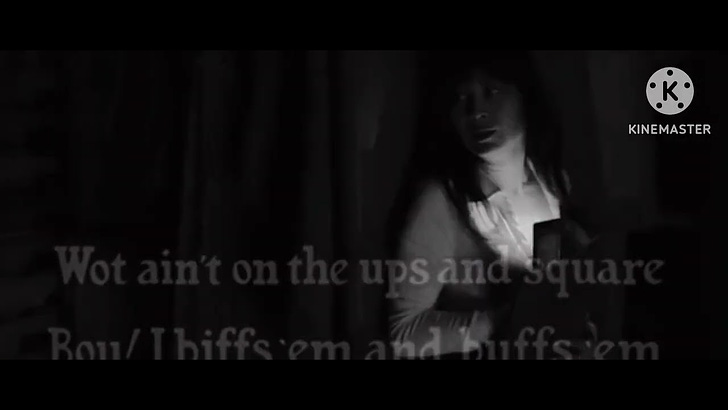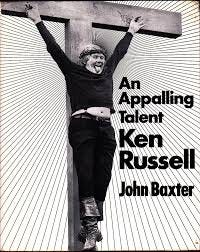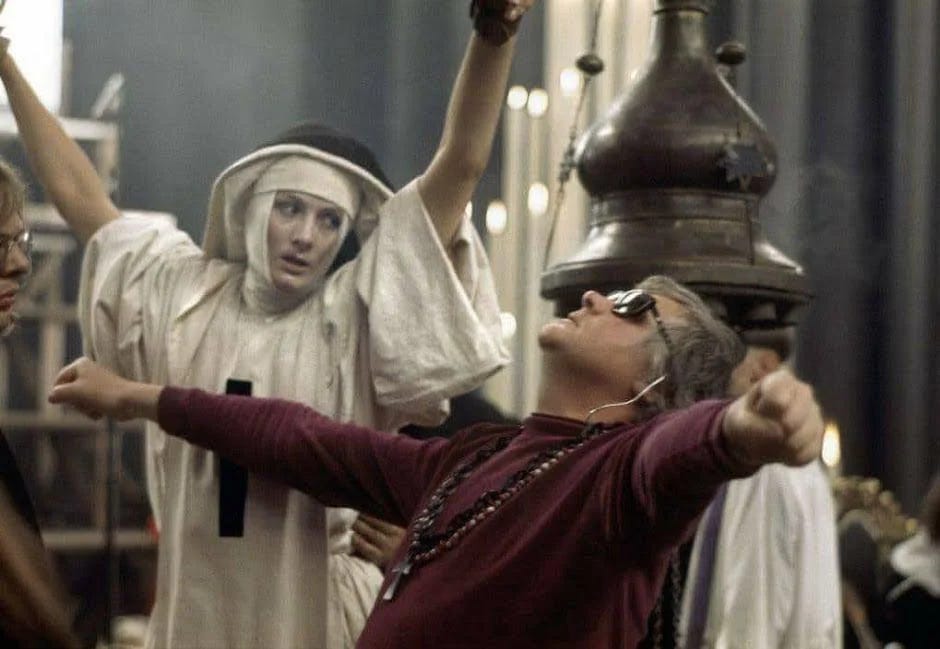Dwayne “The Rock” Johnson, who plays Santa Claus’s head of security in Red One, has announced he has no problem with audiences singing along to its songs. He’s now been joined by one of the stars of Wicked, who welcomes, indeed encourages patrons to join in.
Well, they would, wouldn’t they? (as party girl Mandy Rice-Davies responded when pillars of the British establishment denied sharing her bed.) A tsunami of agreement is even now rolling towards us, powered by every performer whose film is not putting enough bums on seats. Confessions heard in the lobby during Conclave? Absolutely. Real slaughter in the stalls to help the faltering Gladiator II? Bring it on!
One doesn’t have to seek far these days for reasons to stay away from movie houses but this fad provides another. Does nobody remember the horror of those “follow-the-bouncing-ball” shorts that used to pollute the “full supporting program” of cartoons and documentaries that once accompanied every film?
(A piece of movie trivia. Sammy Lerner, who wrote those lyrics, did a similar chore for Marlene Dietrich in The Blue Angel, penning English words of plodding inappropriateness for Falling in Love Again.)
Some modest involvement with the audience is privileged by custom. Audiences at British pantomimes are encouraged to yell “Look out, he’s behind you!” as the villain stalks the heroine, and at performances of Peter Pan it’s de rigeur to shout encouragement to Tinker Bell lest her light flicker out.
At The Magic Flute a few weeks ago, I was mildly surprised but not offended to see Papageno searching for Papagena in the front row of the stalls at Opera Bastille. But the line between charm and chaos is easily crossed. Significantly, those who transgress most often do so out of desperation or hubris. Sing along with Red One, sure. Who cares? But audience participation in Traviata or Carmen? In musicals even? Signing along with Singing in the Rain, like those embarrassing screenings of The Rocky Horror Picture Show¸ with amateurs dolled up in costumes from the film? I’d ask for my money back.
All this reminded me of working with the film director Ken Russell on his biography.
For two months, I watched Ken and then-designer, later director Derek Jarman, develop their conception of Taverner, an opera by Peter Maxwell Davies, set during the suppression of Catholicism by Henry VIII and intended for production at the bastion of British musical prestige, Covent Garden Opera House.
Startling designs flowed from their combined imaginations; a monkey in the triple crown of the Pope, characters who appeared female from one side, male from the other. Ken further proposed to lower all doors into the House to a metre. Patrons would enter on hands and knees, to confront the carcases of freshly-slaughtered animals hanging on the walls, while monks and nuns fornicated in the aisles.
I never believed Covent Garden would accept this scheme, and when they returned disconsolate from the make-or-break meeting it was clear they’d been turned down. Derek had prepared a notebook containing his designs. He also carried a folder of rough sketches, and a copy of Davies’ libretto, heavily annotated. As they came into Ken’s front room, he started to drop them into the wastepaper basket.
I said, ‘You’re not throwing those away?’
He looked at them in surprise. ‘They aren’t going to do it. Not with us anyway.’
‘Let me buy them from you.’
‘Have them, John,’ he said. ‘They’re no use to me.’
I accepted them with delight. But I’m glad I never had to sit through that production.
Ken Russell and Vanessa Redgrave during production of The Devils.






Several things come to mind. The producers may save money on expensive sets and costumes by distracting the audience with sing-along participation, engineering a snowball effect "Wow we had a great time, the star sang just next to us." that could spark greater box office. Or it is a sign of the times creating a momentary common identity. "We are all the same, let the sun shine in!" In any event, it looks cheap.
Having been raised as a Catholic, I've often thought that the resemblance of the cinema to a church was what turned me into a cineaste: the sense of people gathered to share an experience; the warmth; the dimmed light; the focus on exotically dressed individuals, engaged in a mystic ceremony; even the music. If some way had been found to incorporate movies into the mass, I'd probably still be a believer.